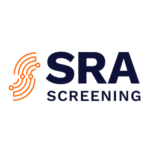
Klasey Wojcik
kwojcik@srascreening.com
Direct: (754) 201-2693
Zulay Moreno
zmoreno@srascreening.com
Direct: (561) 569-8027
There are specific steps you must follow not only before obtaining a consumer report, but also before and after taking any adverse action based on that report.
Have questions or need guidance? We’re here to help—connect with us today!

Hackers from the FIN6 group are posing as jobseekers with fake LinkedIn profiles and resume websites to trick recruiters into downloading malware. After connecting on LinkedIn and moving the conversation to email, they send links to spoofed resume sites that filter users and prompt vulnerable targets to download a ZIP file containing the “More_ Eggs” backdoor. This malware steals credentials and deploys further payloads. By exploiting trust, using reputable hosting platforms, and targeting selectively, the attack evades detection. Experts urge caution with unsolicited applications, verification of sources, and use of strong security tools.

Originally passed in 2021 and later amended, Virginia’s upcoming law allows individuals with misdemeanors or low-level felony convictions to petition for record sealing if they meet specific criteria, such as having no recent serious felonies. Certain offenses, including marijuana possession and some misdemeanors like larceny and disorderly conduct, will be sealed automatically. The implementation was postponed to accommodate a $20 million upgrade to the state’s criminal record systems. Once in effect, most employers, landlords, and schools will be barred from asking about sealed records, and individuals won’t be required to disclose them.

Texas’s new Responsible Artificial Intelligence Governance Act (TRAIGA), effective January 1, 2026, sets forth a framework that prohibits harmful uses of AI, such as behavioral manipulation, discrimination, biometric surveillance, and the creation of deepfakes. It requires government entities to clearly disclose their use of AI to the public and restricts certain types of automated decision-making that lack transparency. TRAIGA offers safe harbors for companies that align with recognized standards like the NIST AI Risk Management Framework and provides a regulatory sandbox for innovative AI development. Enforcement rests solely with the Texas Attorney General, and penalties may apply after a 60-day cure period. The law reflects a business-friendly yet proactive approach and may be subject to federal preemption if overlapping regulations emerge.

A manufacturing company rescinded a job offer after a background check mistakenly attributed criminal charges to an applicant that in fact belonged to his twin brother. Although the error was later corrected, the offer was not reinstated. In the lawsuit against the screening provider, the plaintiff alleged the company failed to take reasonable steps to prevent the misidentification.
This case underscores the significant consequences that can arise from inaccurate background screening and reinforces the critical importance of compliance with the Fair Credit Reporting Act (FCRA). The FCRA mandates that consumer reporting agencies maintain procedures to ensure the “maximum possible accuracy” of the information they furnish.
Employers and screening providers must implement robust, multi-factor identity verification protocols and adhere strictly to both federal and state regulations. Doing so is essential not only to safeguard applicants from unjust harm but also to mitigate legal liability and uphold the integrity of the hiring process.

Originally filed in Oregon in 2013, the class action lawsuit alleged that Robert Half International failed to provide job applicants with both a copy of their background check report and a summary of their rights under the Fair Credit Reporting Act (FCRA) prior to taking adverse employment action. The class encompassed more than 2,300 individuals who, between 2008 and 2017, were flagged with “red” or “yellow” background check results and subsequently categorized as “not placeable” for temporary positions.
Although Robert Half denied any wrongdoing, the company chose to resolve the matter to avoid the expense and unpredictability of a jury trial. The case serves as a compelling reminder of the critical importance of FCRA compliance and the significant legal and financial risks associated with even minor procedural lapses in background screening practices.
Stay informed, stay compliant, and streamline your hiring process with SRA Screening.
Key Resource Hub
Your Questions Answered
Editorial team insights